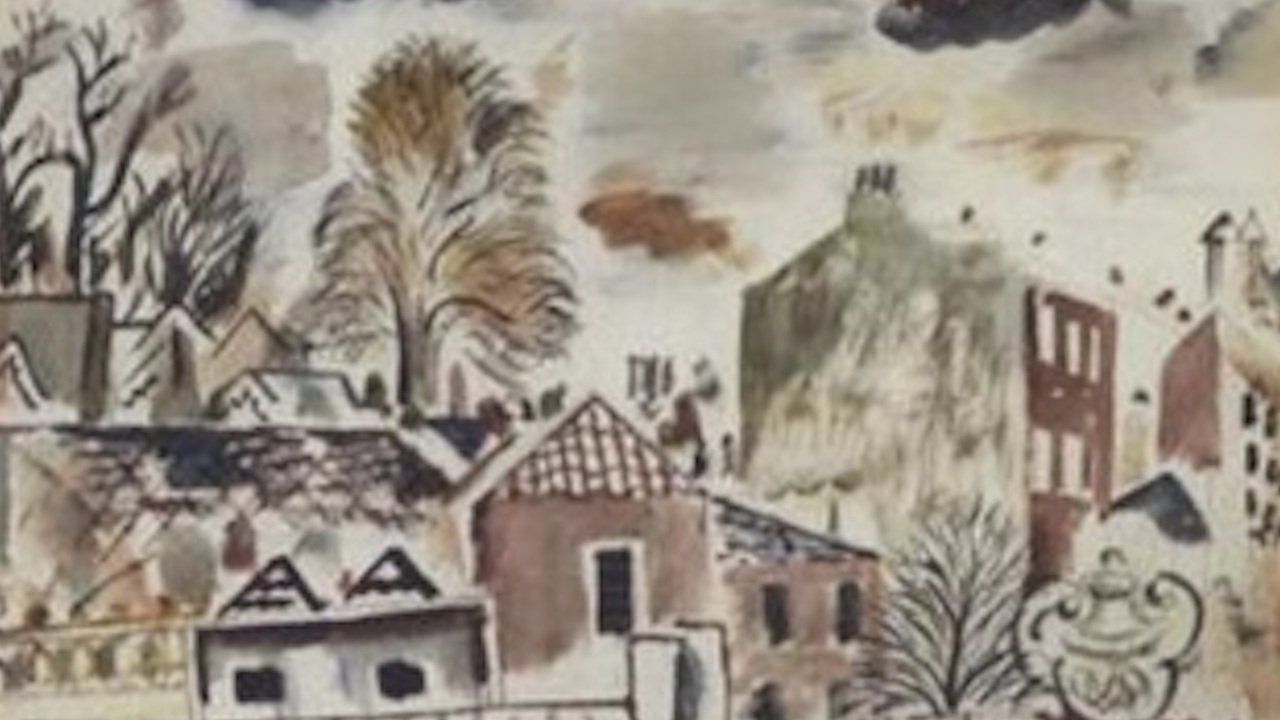A Civilized Town as Place of Pilgrimage
by Eric Gill
Feast of the Martyr Anastasius the Fuller at Salona in Dalmatia
Anno Domini 2020, October 25

We were staying at G------. I must tell you the sort of place it is. First of all, it is on a little mountain of its own, and it is a very little town. There is one street of about thirty houses on each side with a castle and a church and a nunnery at one end and a gateway at the other. It is all built of stone, and nothing has been built since the seventeenth century simply because there is no room for more. There are much higher mountains all round, the air is noisy with the bells of cows.
You know the Swiss are marvelously tidy people. So the whole thing is beautifully in order, and not ruinously picturesque. Moreover, the whole population—and there are several hundred children—is Catholic, except an American artist and his wife, who are said to be, like the Jew in Aberdeen, too poor to leave, and we were told that the postman is a Socialist and a sower of discord. The church is a good plain building, and the curé, a real shepherd, has a vicaire as holy and as hard-working as himself. Many of the men of the place are herdsmen and cheesemakers on the mountains, and some are foresters. The women are—mothers. I said there were hundreds of children. There is a washing-place in the middle of the street, a fountain at which they take turns. There is always washing going on and always the sound of water. You see the place; it is what is called primitive, it may also be called highly civilized, and, in any case, it is what the Catholic Church has made it.
But though it is not a ruin, it has its Catholicism, perhaps, too much as a physical habit and this is the devil’s opportunity. He is not neglectful of it. There are beginnings of corruption. There are chocolate factories within a few miles—and a milk factory is nearer still. There are tourists within its walls. The local handicrafts are dying out. The people are seduced by the shops of the big town. They make less and buy more. The things in their own little shop are mostly the cheap nasty product of the outside industrialism. The young women wear the rotten clothes of—suburban Paris. Their crockery comes from Stoke-on-Trent, perhaps. Probably the rising tide cannot be turned back. Meanwhile it remains a holy place, a fertile island not yet submerged, a place of pilgrimage.
*From “Idiocy or Ill-Will” in Eric Gill, It All Goes Together: Selected Essays (New York: The Devin-Adair Company, 1944), pp. 3-13 at 3-4.
Contribute to Cultural Renewal by Sharing on Your Preferred Platform
In an isolating secularized culture where the Church's voice is muffled through her many divisions, Christians need all the help they can get to strengthen their faith in God and love toward their neighbor. Eighth Day Institute offers hope to all Christians through our adherence to the Nicene faith, our ecumenical dialogues of love and truth, and our many events and publications to strengthen faith, grow in wisdom, and foster Christian friendships of love. Will you join us in our efforts to renew soul & city? Donate today and join the community of Eighth Day Members who are working together to renew culture through faith & learning.









